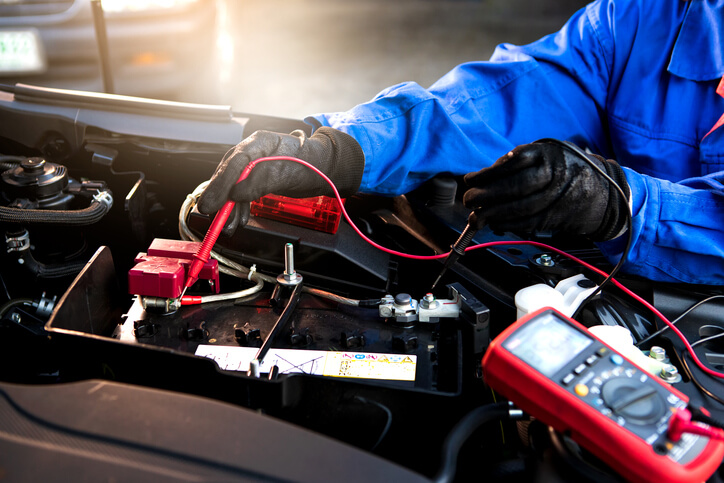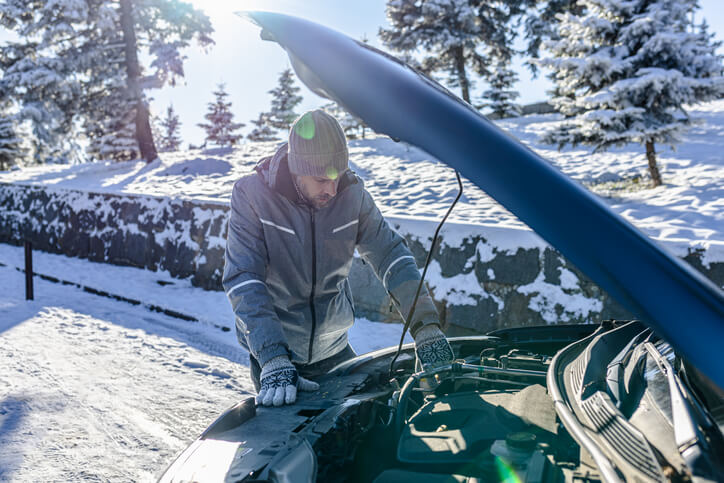Why Car Batteries Struggle in Winter: The Science Behind Cold Starts
Winter mornings and weak starts often go hand in hand, and students at an auto mechanic school in Surrey quickly learn why. Cold slows the electrochemical reactions inside a lead-acid battery, so it can’t deliver the usual current to the starter.
At the same time, thickened engine oil makes the motor harder to turn, demanding even more from a battery that’s already struggling.
Why Do Car Batteries Struggle in Cold Weather?
When temperatures drop, a battery’s available power can plunge as chemical activity slows.
Add short trips (which limit alternator recharge), heavy accessory use (heaters, defrosters, heated seats), and normal battery aging (most last 3–5 years), and the odds of a no-start rise. That’s why preventative testing each fall is smart, especially for vehicles with older batteries.
Common Signs Your Battery Is Failing
- Slow crank: The engine turns over sluggishly before starting (or not at all).
- Rapid clicking: The starter solenoid chatters when there isn’t enough voltage to engage the starter.
- Dim lights / odd electronics: Headlights dip, interior lights fade, clocks reset, or windows crawl.
- Battery/charging light: A warning can indicate low system voltage or alternator trouble.
- Corroded terminals: White/green buildup restricts current flow and mimics battery failure.

How Technicians Pinpoint the Problem
In the shop, and in automotive service technician programs, technicians are taught to take a systematic approach:
- State-of-charge check: A good battery reads ~12.6V at rest. Low readings prompt charging and a retest to see if the voltage holds.
- Load/CCA test: Electronic testers simulate a cold start to verify the battery meets its Cold Cranking Amps rating. If it can’t, replacement is recommended.
- Visual inspection: Swollen cases, loose clamps, or corroded posts can be the true culprits.
- Charging system test: With the engine running, healthy systems typically show ~14V at the terminals; low readings point to alternator or belt issues.
- Parasitic draw check: Excess current draw with the car off (e.g., a stuck glovebox light) can drain even a good battery overnight.
Students practise each step safely, learning correct meter use, cable service, and replacement procedures from choosing the right group size and CCA to securing the new unit and protecting customer settings.

Hybrids and EVs in Winter
Hybrids rely on a conventional 12V battery plus a high-voltage pack. A weak 12V can keep a hybrid from “readying,” even if the traction battery is fine.
Cold also reduces hybrid/EV battery efficiency, so engines run more often in hybrids, and EVs may show reduced range and limited fast-charging until packs warm up. Auto mechanic school in surrey covers safe high-voltage handling, basic scans, and clear customer explanations about normal cold-weather behaviour.
Practical Prevention Tips
- Test and, if needed, replace aging batteries before the first freeze.
- Keep terminals clean and tight; apply protective spray after cleaning.
- Limit short, accessory-heavy trips or use a maintainer if the car sits.
- Park indoors when possible; consider battery blankets in severe cold.
As part of real-world diagnostics and customer service practice, students learn not just to fix the fault but to explain it, building trust and preventing repeat winter surprises. You’ll put this into action throughout your program, from hands-on battery testing to full starting/charging system checks at our auto mechanic school in Surrey.
Train for Real-World Winter Fixes at Our Auto Mechanic School in Surrey
From voltage checks and load tests to alternator diagnostics and safe hybrid/EV procedures, you’ll master the essentials that keep Canadian drivers moving, even in January. If you’re ready for a career where you learn by doing with industry-experienced instructors and real shop time, explore ATCs’ programs.
Are you looking for a comprehensive auto mechanic course?
Contact ATC Surrey Today!


